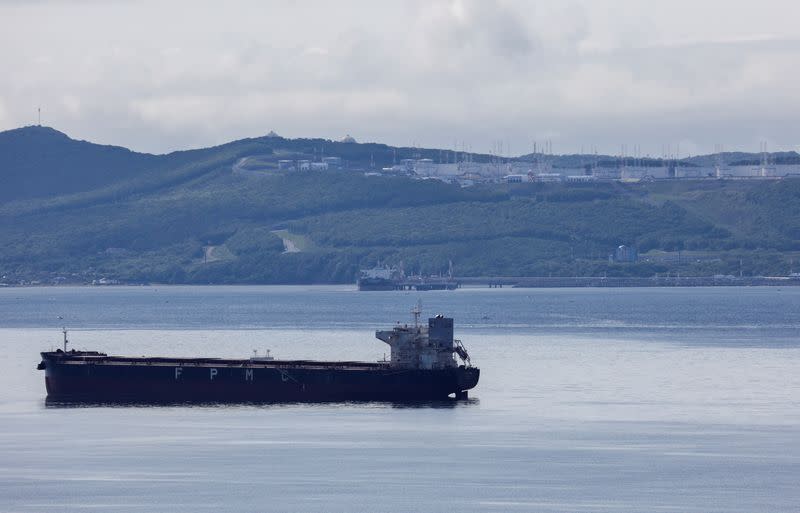Russian crude prices recover on strong India, China demand

By Muyu Xu and Nidhi Verma
(Reuters) -Spot prices for Russia's key export crude grade ESPO Blend to Asia have rebounded from all-time lows amid strong demand from top buyers India and China and easing concerns about possible sanctions, several traders said.
The crude exported from the Pacific port of Kozmino saw its spot differentials dive from premiums to a record discount of more than $20 a barrel in March as western sanctions were slapped on Russian financial and energy companies following the country's invasion to Ukraine.
However, the European Union tweaked sanctions on Russia that came into force last month, easing payment restrictions for oil shipments from state-owned firms Rosneft and Gazpromneft - major suppliers of ESPO crude.
Prices have rebounded with at least two cargoes loading between end-September and early October sold at parity against Middle East benchmark Dubai, the sources said. Indian and Chinese independent refiners find the cargoes far more cheaply priced than Middle East oil of similar quality, they said.
In contrast, Abu Dhabi's Murban crude for September loading sold at premiums of $12-$13 a barrel.
"Russian oil is very popular among Asian refiners and at these prices it's a great value," one of the sources told Reuters. The sources spoke on condition of anonymity due to sensitivity to the matter.
Though prices have recovered, the cheaper supplies have helped to boost Asian refinery margins and price pressures could persist ahead of Europe's oil embargo later this year and possibly more sanctions on Russia.
Similarly, spot prices for Russian Urals crude typically exported to Europe are gradually recovering.
India overtook China to become the biggest buyer of Russian oil in July based on seaborne volumes. The world's No. 3 crude importer lifted a record 29.5 million barrels, Refinitiv Eikon data showed. This included 3.4 million barrels of ESPO crude.
India will continue to buy ESPO Blend oil in October, according to two of the sources.
The world's top crude importer China loaded 18.1 million barrels of seaborne ESPO crude in July, 27% down from an all-time high in June, as major buyer Sinopec Corp cut purchases. Oil supplies loaded from the Russian ports dropped to 21.3 million barrels in July, the lowest since February.
INDIA, CHINA PRICES
The ESPO crude benchmark has traditionally been priced on FOB Kozmino basis. More trades, however, are now conducted via middlemen who resell the cargoes on delivered ex-ship (DES) basis that include other costs such as shipping, insurance and financing to end users in China and India.
For example, the price of a cargo that arrived in India last month included $2 million in freight costs even though it was already priced at a wide discount of more than $7 a barrel to Dubai quotes, another source said.
Prices of ESPO crude delivered to China have also improved, traders said. Last week, cargoes for September delivery were sold at parity to ICE Brent DES basis, rebounding from a discount of $5 a barrel in March.
The European Union sanctions banning seaborne imports of Russian crude and oil products will take effect on Dec. 5.
"Given European concerns about surging energy prices, we think there could be some reticence to go all in on these punitive measures that could potentially take several million Russian barrels off the market," RBC Capital's Helima Croft said in a note.
(Reporting by Reuters, Muyu Xu and Chen Aizhu in Singapore, Nidhi Verma in New Delhi; Editing by Florence Tan and Jacqueline Wong)

 Yahoo Finance
Yahoo Finance 